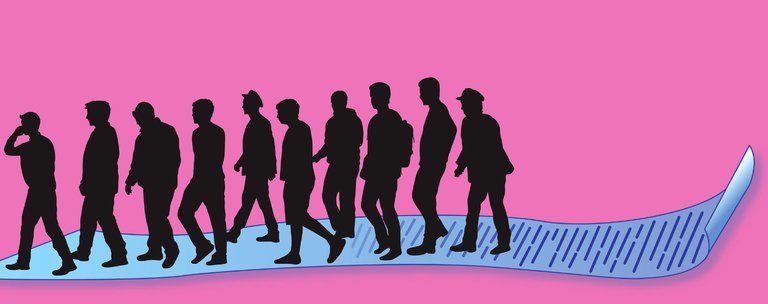Since #MeToo and sexual harassment became a national conversation last fall, there’s no denying what’s been noticeably missing from the cultural reckoning are the voices of men. For instance, at the 75th Golden Globe Awards in January as several actresses – including Meryl Streep and Natalie Portman – walked the red carpet with activists and donned “Times Up” pins to address the issue of sexual violence in their acceptance speeches, male actors did not play a role in the conversation. In an interview on CBS author Jackson Katz who gave a TED Talk titled “Violence against women – it’s a men’s issue” explained why he thinks men are reluctant to speak out on the topic: “I think a lot of men don’t know what to say. I think a lot of men haven’t ever heard other men say this, so they haven’t seen it modeled. I think a lot of men are afraid of stepping in it.” Historically, yes domestic violence and sexual harassment has long been perceived as solely a women’s issue, but Katz emphasized that in order for real change to take effect men need to part of the conversation.
But the question remains how when the #Metoo movement isn’t framed to be inclusive to men. Many notable male stars in Hollywood including Liam Neeson and Michael Haneke have criticized the #MeToo movement as being a “bit of a witch hunt,” expressing concern for their peers who have been chastised for what they feel are comparatively minor offenses. After a controversial article accusing comedian Aziz Ansari of sexual misconduct was posted on the Internet, many raised fear that the movement has gone too far. In an article for The Atlantic, Caitlin Flanagan dismissed the allegations against Ansari: “Apparently there is a whole country full of young women who don’t know how to call a cab, and who have spent a lot of time picking out pretty outfits for dates they hoped would be nights to remember. They’re angry and temporarily powerful.” These remarks frame men and women as being locked in a Battle of the Sexes, mistakenly assuming that if women are suddenly empowered, men suffer.
It’s important to note that this mindset is not just felt in Hollywood, the #MeToo movement seems to be causing a negative backlash at work. A new survey reveals that the number of men uncomfortable being alone with a woman at work has doubled since the heightened awareness around the issue. Male managers are also three times more likely now to say they are uncomfortable mentoring women. Sheryl Sandberg, the founder of LeanIn.Org – a nonprofit that conducted the survey – says the results are alarming because when mentoring becomes selective, women miss out on opportunities to advance their careers.
But the question remains how when the #Metoo movement isn’t framed to be inclusive to men. Many notable male stars in Hollywood including Liam Neeson and Michael Haneke have criticized the #MeToo movement as being a “bit of a witch hunt,” expressing concern for their peers who have been chastised for what they feel are comparatively minor offenses. After a controversial article accusing comedian Aziz Ansari of sexual misconduct was posted on the Internet, many raised fear that the movement has gone too far. In an article for The Atlantic, Caitlin Flanagan dismissed the allegations against Ansari: “Apparently there is a whole country full of young women who don’t know how to call a cab, and who have spent a lot of time picking out pretty outfits for dates they hoped would be nights to remember. They’re angry and temporarily powerful.” These remarks frame men and women as being locked in a Battle of the Sexes, mistakenly assuming that if women are suddenly empowered, men suffer.
It’s important to note that this mindset is not just felt in Hollywood, the #MeToo movement seems to be causing a negative backlash at work. A new survey reveals that the number of men uncomfortable being alone with a woman at work has doubled since the heightened awareness around the issue. Male managers are also three times more likely now to say they are uncomfortable mentoring women. Sheryl Sandberg, the founder of LeanIn.Org – a nonprofit that conducted the survey – says the results are alarming because when mentoring becomes selective, women miss out on opportunities to advance their careers.

 RSS Feed
RSS Feed